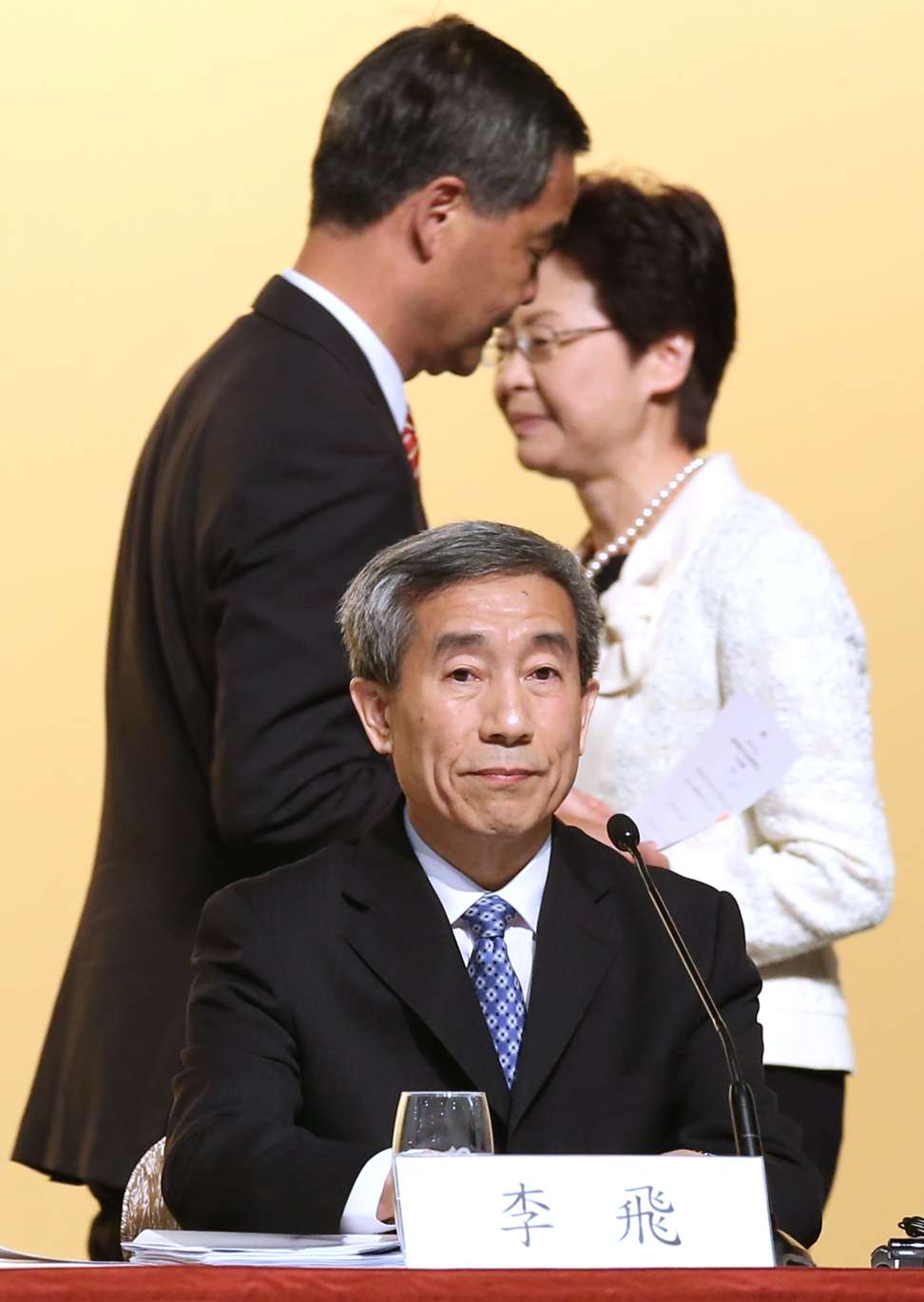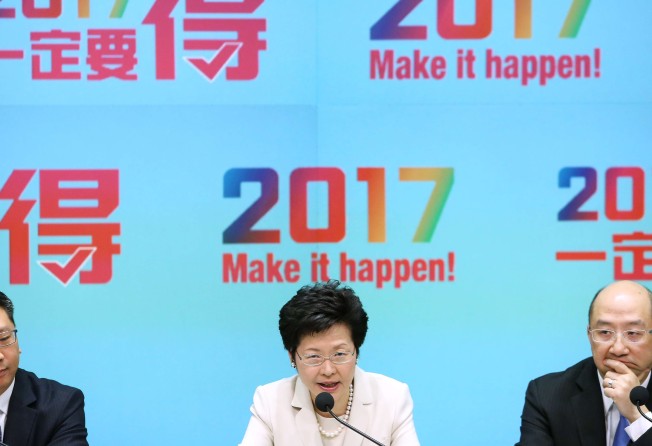
Hong Kong won’t see universal suffrage without compromise. Do the pan-democrats realise this?
Mike Rowse says it is unrealistic to expect Beijing to withdraw its 2014 rules for the city’s electoral framework. Instead, the pan-democrats should push to tweak them

Hong Kong’s pan-democrats have got two big things right on the subject of political reform, and just about everything else wrong.
Let’s start with the right stuff. First, it is absolutely correct to say that if they had been given a completely free hand in the choice of chief executive, Hong Kong people would have had enough common sense to elect someone who can deal rationally and loyally with Beijing. Unfortunately, Beijing does not share that assessment, hence the framework set down by the National People’s Congress.
Secondly, the pan-democrats are also correct to say that the issue has to be dealt with in the term of our first female chief executive, Carrie Lam Cheng Yuet-ngor. The lack of meaningful progress on political reform is a boil on the body politic which needs to be lanced before it bursts and poisons the atmosphere for the whole of the next five years. Notwithstanding Lam’s reluctance to resume discourse on a subject which so badly bruised her last time round, she will have to grasp the nettle.
Have the pan-democrats learned any lessons from the failure to secure real progress in 2014? The signs are not promising. On that occasion, they pitched their tent on the issue of civic nomination and refused to budge. When Beijing stood firm, the effort collapsed. This time, the message from at least some of the pan-democrats seems to be that the reform process can only begin if and when Beijing formally withdraws the August 31 decision. It’s a bit like expecting the Pope to withdraw a papal encyclical while the ink is still wet. That is just not going to happen any time soon.
It’s a bit like expecting the Pope to withdraw a papal encyclical while the ink is still wet. That is just not going to happen
So should we just give up, and busy ourselves with other things? That might suit the hardliners up north who think Hong Kong already enjoys too many privileges. But it would be a defeatist approach and our rendezvous with history in 2047 would arrive without our ever having locked in universal suffrage.
How do we move forward? We have to start by abandoning the idea that universal suffrage will somehow make us less a part of China. We can only have democracy under Chinese sovereignty, which means reaching an accommodation with the capital. We have to concede that, while we don’t like the August 31 framework, we are prepared to accept it, provided we can make some changes to the way members of the key committee are elected and the modus operandi of the screening system.
The transformation of the Election Committee into a nominating one is not in itself momentous, but the Basic Law requires the latter to be “broadly representative”, which the former manifestly is not. The pan-democrats should insist on scrapping corporate voting, for example. There is also considerable scope for the allocation of seats to be adjusted to more fairly reflect the shape of Hong Kong’s economy and society.
Having the freedom to elect whoever we like, only to have the result rejected, is not much of a freedom
Now to the system for screening. The reflex reaction is that no screening is acceptable. Understandable, but is it realistic? Beijing has already stated that the power of appointment of the chief executive is a substantive one and it does not follow that whoever wins the election will be endorsed as a formality. In such circumstances, does it really make much difference if the vetting takes place at an earlier stage? Having the freedom to elect whoever we like, only to have the result rejected, is not much of a freedom. Beijing will be embarrassed, but unless that was the object of the exercise, we are not really much further forward.
Let all names go in front of the nominating committee. The chairman can read out the names one by one and ask if there are any objections. If anyone does object, he or she should get five minutes to say why. The candidate would then have five minutes to reply. A secret ballot would follow, and the candidates who get 601 and more votes go on the ballot.
The community would then have the opportunity to select the candidate they prefer in circumstances which make it virtually impossible for Beijing to reject the outcome. That is the choice we face: zero progress and another five years of frustration, or a lot of compromise which secures universal suffrage.
Mike Rowse is the CEO of Treloar Enterprises. [email protected]